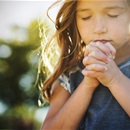Teaching Your Kids How to Develop Good Friendships
Description
Dear Greg,
Do you have any advice on helping my children make friends and develop good friendships? Our girls are young (ages 3 and 9) but we want to do what we can now to help them develop healthy friendships later on.
Answer:
Two important factors in any friendship are character and relationship skills. Regardless of whether a person is naturally an extrovert or an introvert, everyone can enjoy having and being a good friend by learning various skills and developing some important character traits. It’s definitely better if our kids can learn these at a young age, although the good news is that we can pick these up later in life, too.
There are several character traits that are important to healthy relationships. These include—but are not limited to—kindness, empathy, compassion, loyalty and trustworthiness. The more a child develops these, the more likely they will have and be good friends as they grow. One way children learn and cultivate these qualities is by playing with others.
Young kids explore friendships through play. You can help your child expand his or her relational skill set by reinforcing positive character traits when you see your child display them. Comments such as, “That was awesome when you shared your toys with Bobby; that made me very proud of you,” drive home the importance of treating others with kindness. Don’t forget, though, that children need to be lovingly corrected when they do the wrong thing. For instance, if your child pushes another child or takes her toys, let her know that the action isn’t appropriate and ask her to apologize.
Setting up play dates with other parents of young children or taking your child to the playground can provide great opportunities for little ones to practice positive relational skills, or to respond with grace and resiliency if other kids don’t quite get the “play nice” thing exactly right. For kids in pre-school through elementary school, debriefing after school or around the dinner table gives you the chance to ask about their day and find out how things are going with their classmates.
With your older daughter, it would be worthwhile to teach her the truth of the old saying, “The only way to have a friend is to be one.” Ask her what a good friend looks like. Then ask what type of friend she is to others. Does she show care, concern, kindness and respect for others? Or do arguing and complaining about others make regular appearances in her interactions with peers?
Talk with your daughter about what a good friend looks like, and stress the importance of establishing friendships with others who will build her up and who care about what is good for her. Make sure she knows that some people may call themselves friends but may ask her to do things that are wrong. She needs to know that someone who acts that way isn’t really being a friend at all. And, of course, her responsibilities as a good friend include building up her friends and helping them be the best they can be.
 Overcome challenges with guided prayer, journal prompts, and God’s wisdom using iDisciple Growth Plans.
Overcome challenges with guided prayer, journal prompts, and God’s wisdom using iDisciple Growth Plans.

-12.png)








